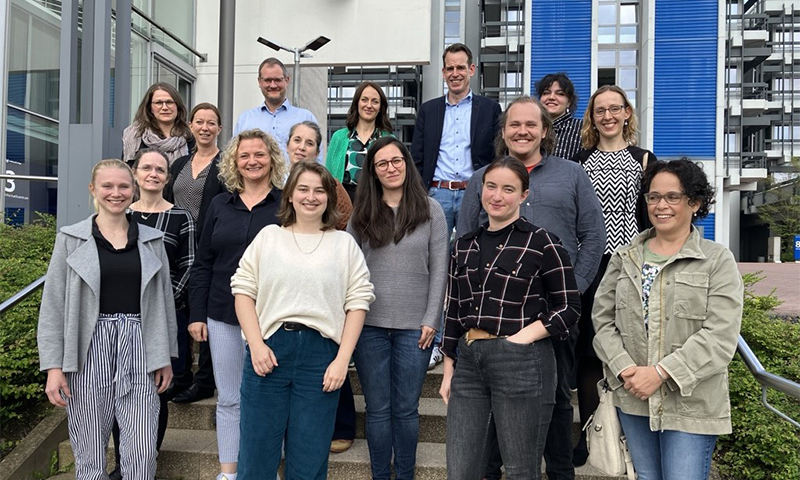News
CATALPA Junior Researchers: Clever publishing - but how?
[16.05.2024]Publications were the focus of the self-organized CATALPA Junior Researcher's Day on 8 May 2024. Professors from educational science, psychology and learning analytics gave tips from their wealth of experience, and an employee of the university library was also a guest. The event concluded with a workshop with external moderation.
 Photo: CATALPA
Photo: CATALPA
"At the last Junior Researchers' Day, the wish arose for us to take a closer look at this topic," report Nathalie Bick, Mai Grundmann and Jennifer Hochstein. They organized the Junior Researchers' Day together. In keeping with CATALPA's interdisciplinary focus, the organizing team invited experts with different specialist perspectives.
Planning with foresight
The advice from the field complemented each other to form a comprehensive overall picture. "The thematic fit of a journal is very important," recommended Prof. Dr. Marco Kalz, Professor of Media Didactics at the Heidelberg University of Education. Junior researchers should inform themselves well in order to avoid unnecessary rejections. Cognitive psychologist Prof. Dr. Hannes Schröter advised thinking ahead: "Publication planning and study planning should run in parallel," he said.
Taking feedback seriously
Kalz and Schröter agreed that feedback should be taken seriously in the subsequent review process. "You have to value the reviews," said Kalz. This almost always improves the quality of a contribution. Schröter strongly advised against submitting a rejected paper to a second journal without changing it. This is because reviewers often work for more than one journal: "If I receive the same paper for review from a second journal and then none of the initial comments have been incorporated - that doesn't go down too well with me, of course."
Even with setbacks: don't give up
Publications in the field of learning analytics are somewhat different, according to Junior Professor Dr. Ioana Jivet. Proceedings of conferences also count as publications here. "And there is no revision process for conference submissions," she explained. "This means that the paper must already meet a high standard." She only recommends journal publications for the second half of the doctoral phase. "It's more difficult to get accepted there and requires a bit of experience," says Jivet. Anyone looking for feedback for their PhD proposal, on the other hand, can receive this at a conference in the "Doctoral consortium".
Hannes Schröter's concluding advice was valid for all junior researchers across all disciplines: "Don't give up! An academic career is a long road with ups and downs, so tolerance of frustration is very important."
Support from the University Library
The University Library is an important partner in publication planning - especially when it comes to estimating the costs that may be associated with a publication. For example, it has concluded (transformation) agreements with some publishers that enable members of the FernUniversität to publish Open Access free of charge in the journals of these publishers. In some (not all!) pure Open Access journals, members of the FernUniversität receive discounts of 10-20 percent.
Publishing a dissertation on the deposit_hagen publication server, on the other hand, is free of charge.

